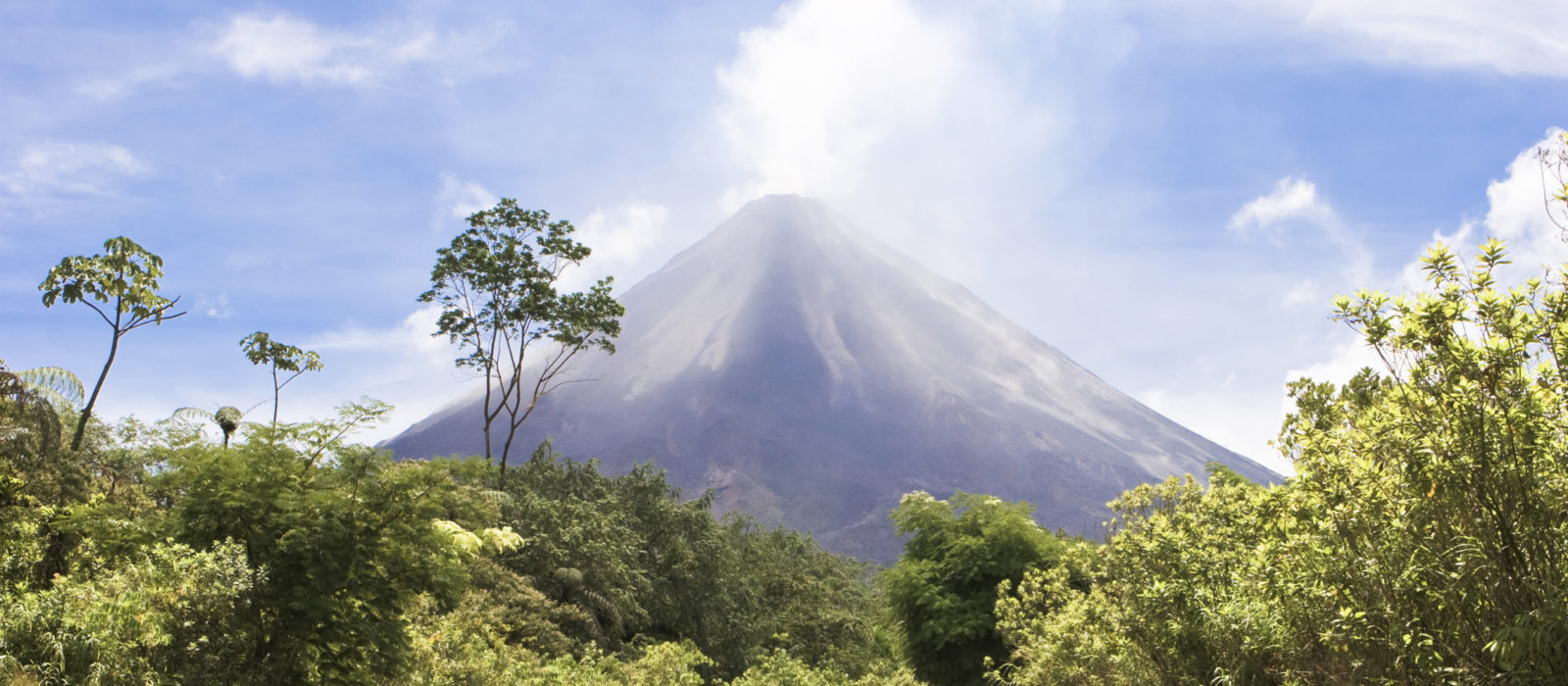Published on: October 21st, 2012
Last modified: August 3rd, 2022
We've compiled our list of most frequently asked questions to help you get prepared before your big adventure to Costa Rica. Please read through the questions, using the navigation bar on the left hand side of your page to move easily between the different sections.
Please note that requirements and advice can change so we do recommend you check in with your own travel insurer, doctor and relevant local embassies before embarking on your adventure.
Are there any entry requirements for Costa Rica?
Visas
There are currently no visa requirements for EU, Australian, US or Canadian citizens. A Costa Rica tourist visa is not required for citizens of Singapore, however it is required for citizens of Hong Kong. Other nationalities who do need to apply for a visa should make sure they have enough time to complete the process before travel.
Please note that requirements can change and we recommend that our guests contact the local embassy in the country where you live for the most recent and up to date information.
Passports
All passports must be valid for at least six months after your intended departure and have at least two blank pages for immigration stamps.
We will confirm certain elements of your trip such as regional flights or permits using your current passport details. If a member of your party changes their name in their passport after booking (for example, through marriage or adoption) this could mean having to reissue important parts of the trip at an extra cost and subject to availability.
Are there any laws, rules or regulations I should be aware of?
Children who are 13 years old or younger and travel without legal guardians or with only one legal guardian (and example could be travelling with only grandparents or just one parent as a group of friends) will require some extra paperwork including a notarized travel authorization and birth certificate. Please speak with your travel designer or concierge before travel to check on the current requirements.
Costa Rica has an anti-smoking law. There is a complete ban on smoking in all workplaces and public places, including restaurants and bars.
Do I need travel insurance?
Yes, once your trip is confirmed it is essential that you take out comprehensive travel insurance to cover you in case anything unexpected happens.
We always recommend that our guests get the maximum level of coverage that you feel comfortable investing in. Read more about travel insurance for US travellers here and for travellers from other countries here.
Do I need to visit a travel doctor before my trip?
Yes, you should visit a travel doctor before your trip as they may recommend certain vaccinations or medications before or during travel. Some vaccines commonly recommended for travellers to Latin America include: Tetanus, Diphtheria, Polio, Typhoid, Hepatitis A, Hepatitis B, Rabies and Meningitis.
Please seek professional medical advice and recheck close to the date of travel as the situation may change.
We advise our guests to protect themselves from mosquito bites, particularly at dusk and dawn. For the best protection against bites your repellent should contain one of the following active ingredients: DEET, picaridin (KBR 3023), Oil of Lemon Eucalyptus/PMD or IR3535. However, it is very important that you know you are not allergic to any of these ingredients before application. You must consult with your doctor before using these strong repellents, particularly before using on children.
What do I need to know about my regional flights?
Typically regional flights in Costa Rica will be on the smaller planes seating approximately 14 passengers with a luggage restriction of 18kg/40lbs per person in economy class. One piece of hand luggage can also be carried with a maximum weight of 4.5kg/10lbs. Excess luggage up to 23kg/50lbs can be purchased at an additional cost and you should discuss this with your travel designer or concierge before departure.
Please let us know if you have seat assignment preferences and we will notify the airlines. Please note that seat assignment is subject to change and always at the discretion of the airline.
What will I receive from Jacada before I depart?
Travel pack
Before you head off on your adventure you will be sent a travel pack. The travel pack is full of great information and is also a beautiful keepsake. It is not necessary to travel with vouchers or confirmations on your trip but we do recommend having a printed copy of your travel itinerary to hand when you arrive into Costa Rica.
Bon Voyage email
Around 2 weeks before you depart we will email you an electronic version of your travel pack including your domestic flight tickets. Once you’ve received this email your Travel Designer will reach out to arrange a time for you to talk on the phone to go over any last minute questions and talk you through the information we’ve sent over.
Do I need to bring the local currency?
The local currency in Costa Rica is called the Colon, it’s used in conjunction with the US Dollar. Although you can use US Dollars in most shops and restaurants it can be handy to withdraw a small amount of local currency at an ATM on arrival, there will most likely be a small fee for this withdrawal. You will find the local currency is more widely accepted in very small shops, markets and local cafes. You can receive your change in either local currency or US dollars. We recommend that you bring smaller US dollar bills ranging from just USD 1 to USD 50 as large USD 100 bills can be hard to use and exchange.
Cash machines are always nearby in big cities, but you must be sure to look for the relevant symbol, either VISA, MAESTRO etc, to ensure it is an international machine, local ones won’t work. Outside the larger cities and towns it can be hard to find ATM’s so it’s recommended to have the cash you need already withdrawn before heading into remote areas.
Credit cards are accepted with almost as much frequency as they are at home. Generally it’s good to have more than one card, so that you have an alternative if there is a problem with one of them.
We do not recommend the use of traveller’s cheques. Most banks impose a service charge for cashing traveller’s cheques and currencies other than the US dollar are sometimes not accepted at all.
Can you tell me about tipping and etiquette in Costa Rica?
Tipping is generally expected for tourists in Costa Rica and it’s best to tip in the local currency rather than US dollars, so work out the equivalent amounts for the figures recommended below. If you’re on a trip with several guides and drivers, tip them individually, rather than relying on one of them to split the tip evenly. For this purpose, many people find travelling with a few envelopes to be useful.
It can be tricky to break down big bills in Costa Rica, so try and hang on to small denominations, which you can use for tipping.
Normally, the rates are 10-15% in restaurants, hotel porters get USD 1 to USD 2 per piece of luggage, a private guide on a full-day trip will get about USD 30 or USD 15 for a half-day tour and it’s about USD 10 for a private driver on a full-day trip.
What’s the weather like and how should I pack?
What you pack for your trip can change depending on the time of year and activities you’ll take part in. If you’re travelling during the dry months of December to April you can expect high temperatures on the Pacific coast. Arenal will feel very warm during the day and a little cooler in the evenings and Monteverde will typically be cooler all day through to the evening. May to October is known as the green season and you should expect warm temperatures and heavier rainfall.
You can find our general packing list below showing essential items but please speak with your travel designer or concierge about a personalised list for your own trip if you’d like some extra suggestions.
Clothing
- Shorts – recommended for rafting activities
- T-shirt – light material or cotton
- Long sleeved shirts – light material or cotton
- Hiking trousers – lightweight or quick drying material
- Jeans are not recommended for activities (they can be suitable in the cooler evenings) because of their weight and drying time
- Sweater, sweatshirt, lightweight fleece for cooler evenings and early mornings
Shoes
- Lightweight, waterproof walking shoes or boots. They should be worn in and comfortable
- Trekking Sandals and Flip Flops, if you are rafting please include some water shoes or waterproof sandals
Useful Extras
- Spare pair of glasses, if you wear prescription lenses
- Sunscreen
- Insect repellent
- Deodorants should not be aerosol as they harm the environment
- Medications and personal prescriptions
- Refillable bottle – you may drink water directly from the tap at some hotels (please always double check with the hotel before drinking tap water)
- Light cap or hat with a wide brim
- Windbreaker
- Waterproof camera (for rafting) or regular camera with waterproof case for hiking and other outdoor activities
- Plastic bags of various sizes to protect valuables from rain and water
- Sunglasses
- Binoculars
- Head Torch – in remote areas some lodges use minimal lighting from generators at night
Almost all of the properties in Costa Rica will offer a laundry service at an extra cost. You might find some pricing to be quite expensive so please do check the costs with reception before sending your items to be washed.
Should I make restaurant reservations?
We highly recommend that you make restaurant reservations in advance of your trip. Once your trip is confirmed you will be introduced to your concierge who will be able to assist you in not only making the reservations but also making recommendations based on your preferences.
What’s the transport like?
We only recommend taking transfers arranged by Jacada travel, the team on the ground, your hotel or a restaurant we’ve reserved for you. Although there are metered taxis and even uber in the major cities these shouldn’t be necessary on your trip.
How can I keep connected on my trip?
Plugs and power
For Costa Rica there are two associated plug types, types A and B. Plug type A is the plug which has two flat parallel pins and plug type B is the plug which has two flat parallel pins and a grounding pin. Costa Rica operates on a 120V supply voltage and 60Hz.
Wifi and Internet
Wifi is common in most hotels and lodges in Costa Rica. In remote areas the connection can be patchy and is not always available throughout the entire property, sometimes only being available in the common areas or in the rooms. There are some exceptions, so if regular and reliable connectivity is important to you please discuss this with your travel designer or concierge.
Remote areas
Cell phone reception and roaming is not always possible in some remote areas so please bear this in mind when planning communications while on your trip. You can speak with your provider at home to ask about roaming charges.




